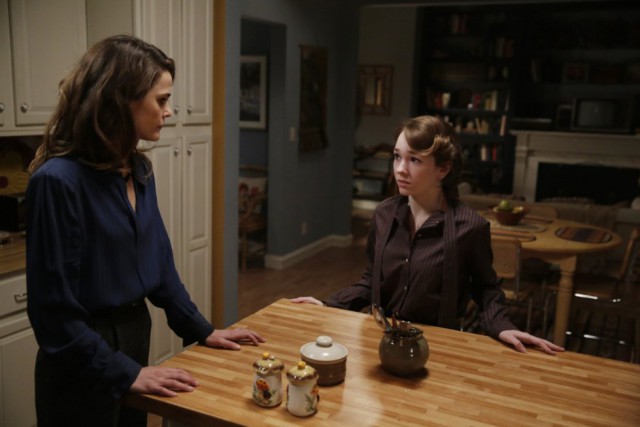Mad Men, Season 5, Episode 6: “Far Away Places”
Written by Semi Challes & Matthew Weiner
Directed by Scott Hornbacher
Airs Sundays at 9pm (ET) on AMC
What do the characters in ‘Far Away Places’ do when confronted by their own problems? There is undoubtedly an implicit vulnerability in existence between them and a longing for acceptance. But it’s more than that though. It’s the unmistakable desperation to escape these issues, resulting in mental and literal journeys to distant places.
In a cleverly concealed and well-paced cut up narrative, the writers tell of a single day in the life of three major characters. First Peggy, then Roger and finally Don. All three exhibit a determinedness to elude their day-to-day issues, but also a hunger to be accepted.
This week, we find Peggy running from both her private and professional difficulties. “Your mind is always elsewhere,” says a frustrated Abe, complaining of her inability to separate her private and professional lives. Abe craves to be seen as more than just a distraction that she might take to work “and stick…in a draw and open it whenever [she gets] bored.” What he’s really after is acceptance.
Earlier, he suggests seeing Cornell Wilde’s film The Naked Prey, a story about surviving in the wilderness of Africa. Not only does the title of the film evoke Peggy’s quandary to this point, it also mirrors her vulnerability during the scene set in the cinema. Here, she smokes a joint of marijuana, which alludes to a psychological escape.
Then back at SCDP, Ginsberg is avoiding his own issues with his father. This is something he clearly does not wish to discuss with Peggy. Meanwhile, she is left handling the Heinz pitch. During her address, she talks of a group of kids that “suddenly feel included” and “safe from whatever is out there in the night”. Her forceful attempts to persuade Raymond Geiger of Heinz are more simply about the acceptance that she herself pines for. As she notes to Abe earlier, work on the Heinz account has taken months.

Before Peggy realises her “need” for Abe, Ginsberg claims he’s a Martian. In effect, he is trying to explain to her his feelings of isolation between himself and his father. Without facing the root of his issue with his father, he has become alienated from the relationship. Peggy seems to take some consolation from the idea of there potentially being “others like [him]”, as if buoyed by the fact that she is not alone in her own dilemmas.
Meanwhile, Roger begrudgingly attends a dinner party hosted by some of Jane’s friends. In a dreamlike sequence, they take LSD, something Jane claims will “be good for [them]”. Like Peggy in the cinema, the drug taking is simply to ease the pain of reality. As one partygoer warns Roger, “don’t look in the mirror”, inferring to do so would reveal the shamble that their lives have become.
As for Don, he is always eager is to escape literally, taking Megan on a holiday to a Howard Johnson Hotel and Restaurant. Whilst there, instead of drug taking, Don and Megan resort to food as their outlet of escapism. Ordering copious amounts of it, the trip seems to be almost fanciful in its splurge. In fact, it seems Weiner and Chellas are trying to suggest the couple has everything. A sentiment noted by Roger’s prolonged gaze at them before they leave the office.
However, before long an argument occurs and Don storms off in his car, symbolically driving away from his problems. Then in a sequence channeling George Sluizer’s ‘The Vanishing’, Don finds himself frantically searching the local area for signs of Megan. Having returned home to find Megan inside, Don forces his way into their apartment. Upon entering they clash again, then in a somewhat disturbing and frenzied few moments, Megan races away from her husband. With this season’s undercurrent of violence, particularly in reference to Don, there was a split second, where it seemed he might even kill her, accidentally or otherwise.
As they both lie panting on the floor, Don apologises and in another sign of psychological superiority, Megan stands defiantly above Don. Significantly and literally, Don is on his knees for her. That said she might have psychological power over Don, but her hankering for acceptance as a part of the copywriting “team” proves that Megan is just as vulnerable as anybody else.
Having reached the halfway mark of the fifth season, it will be interesting to see how Weiner and his team of writers deal with the remaining episodes. Will Roger and Joan finally obtain an open relationship? How will the remaining episodes deal with Don’s increasing violence? Will Pete and Roger’s spiteful affiliation bubble over? Where will Peggy find herself come season’s end? With a distinctly darker tone and a greater willingness to utilise violence, this season could well go anywhere.
Adam Farrington-Williams







